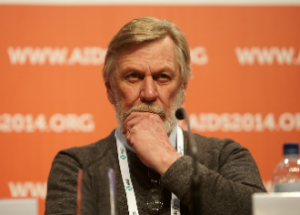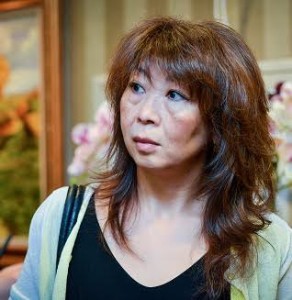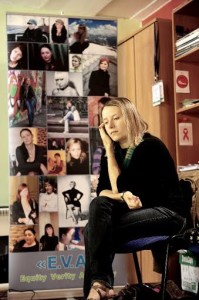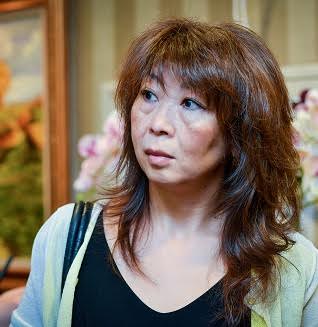Read more about the Eurasian Harm Reduction Network at www.harm-reduction.org
Report by EHRN
EHRN commemorated 16 Days of Activism Against Gender Violence, starting on November 25, the International Day for the Elimination of Violence against Women, until December 10, the International Human Rights Day. The campaign called for partnership between civil society and law enforcement in combating police violence against women who use drugs.
Promoting law enforcement and civil society cooperation is among EHRN’s priority tasks and corresponds to the strategic goal of creating a non-repressive and enabling legal and law enforcement environment that ensures fulfillment of civil and human rights of PWUD.
EHRN strongly believes that only through partnership and cooperation we can ensure better human rights protection and HIV prevention among people who use drugs, as well as safety within society.
Promoting law enforcement and civil society dialogue, EHRN cooperates with a range of institutions and organizations.
Please find below EHRN partners’ quotes on law enforcement and civil society benefits.
Nick Crofts, Director, Centre for Law Enforcement and Public Health, Amsterdam, Netherlands
 The Law Enforcement and HIV Network (LEAHN) strongly believes that the primary responsibility of police is to protect the most vulnerable in our communities. In many societies, this includes women, who are by far the most common victims of violence … and in many societies, women who use drugs are even more severely affected. And when the perpetrators of this violence are police themselves, LEAHN believes that there is an urgent need for reform of police cultures. The most effective and critically important step in this reform is the formation of respectful partnerships between police and civil society organisations, so that all can see these are shared problems, only susceptible of joint solutions. Gender-based violence is unacceptable in any setting; LEAHN members strongly advocate with their colleagues to eradicate it from police behaviours, and to join with our communities to eradicate it altogether.
The Law Enforcement and HIV Network (LEAHN) strongly believes that the primary responsibility of police is to protect the most vulnerable in our communities. In many societies, this includes women, who are by far the most common victims of violence … and in many societies, women who use drugs are even more severely affected. And when the perpetrators of this violence are police themselves, LEAHN believes that there is an urgent need for reform of police cultures. The most effective and critically important step in this reform is the formation of respectful partnerships between police and civil society organisations, so that all can see these are shared problems, only susceptible of joint solutions. Gender-based violence is unacceptable in any setting; LEAHN members strongly advocate with their colleagues to eradicate it from police behaviours, and to join with our communities to eradicate it altogether.
Zhannat Kosmukhamedova, UNODC Advisor, HIV in Eastern and South-Eastern Europe and Central Asia
 To ensure successful and effective implementation of policies and programs for the prevention and treatment of HIV, the partnership between all involved public sector structures and cooperation of all stakeholders should be strengthened. In this sense, law enforcement agencies play an important role and bear a significant responsibility, because their actions can have a direct impact on the spread of HIV infection among people who use drugs. For example, punitive law enforcement actions significantly reduce the effectiveness of interventions by NGOs aimed at HIV prevention and treatment. Experience shows that civil society organizations have a considerable potential to provide practical assistance in the field of prevention and services for people living with or affected by HIV. Joint and coordinated activities of law enforcement agencies and civil society organizations help to ensure smooth, continuous and equal access to services to reduce the risk of HIV and play a key role in preserving the lives of key affected populations. Based on this approach, UNODC assists countries in strengthening cooperation between law enforcement and civil society in this area. In particular, UNODC promotes the formation of a platform for a structured dialogue between civil society and law enforcement. UNODC has developed a series of courses to train law enforcement agencies on harm reduction and raise their awareness of their role in HIV prevention. Also a practical guide was made available to NGOs to strengthen their capacity by building successful partnerships and cooperation with law enforcement authorities.
To ensure successful and effective implementation of policies and programs for the prevention and treatment of HIV, the partnership between all involved public sector structures and cooperation of all stakeholders should be strengthened. In this sense, law enforcement agencies play an important role and bear a significant responsibility, because their actions can have a direct impact on the spread of HIV infection among people who use drugs. For example, punitive law enforcement actions significantly reduce the effectiveness of interventions by NGOs aimed at HIV prevention and treatment. Experience shows that civil society organizations have a considerable potential to provide practical assistance in the field of prevention and services for people living with or affected by HIV. Joint and coordinated activities of law enforcement agencies and civil society organizations help to ensure smooth, continuous and equal access to services to reduce the risk of HIV and play a key role in preserving the lives of key affected populations. Based on this approach, UNODC assists countries in strengthening cooperation between law enforcement and civil society in this area. In particular, UNODC promotes the formation of a platform for a structured dialogue between civil society and law enforcement. UNODC has developed a series of courses to train law enforcement agencies on harm reduction and raise their awareness of their role in HIV prevention. Also a practical guide was made available to NGOs to strengthen their capacity by building successful partnerships and cooperation with law enforcement authorities.
Svetlana Moroz, Executive Coordinator of the Eurasian Women’s AIDS Network

All initiatives aimed at combating police violence against women are a vital necessity. We can not stop the AIDS epidemic, because women will not seek help for HIV prevention and treatment. When women themselves learn how to use the mechanisms for protecting their rights and, in parallel, civil society and international human rights institutions require governments to implement relevant policies and conventions, we will be able to influence and change the system in which repression is the only measure for women addicted to drugs, which has no alternatives.
Read more about the Eurasian Harm Reduction Network at www.harm-reduction.org



